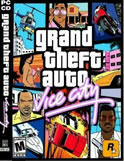
 Some facts on Video Game Piracy
Some facts on Video Game Piracy
"Warez" is the generic term for copyrighted computer software that has been stripped of any copy protection or "cracked", and made available for distribution by software pirates.
ROM stands for "Read Only Memory", a type of computer chip that permanently stores data. In the world of game piracy, it generally referrs to the ROM(s) of a video game cartridge that have been transferred to a computer file.
U.S. Copyright laws allow you to make one backup copy of software you own. However, that backup copy is "tied" to your original. If you sell or give away your original software, you must destroy your backup copy or package it with the orignal when you sell or give it away. Likewise, you may not sell or give away your backup copy without the original.
Even if you own the original game, you are not entitled to download a copy of it. Copyright law clearly states that the only copy of software you are entitled to is the one you make yourself.
Distribution of copyrighted works without permission of the creators is a violation of copyright law.
Once a game or other software title is released into the Public Domain, it's legal to be downloaded, used, and mis-used by anyone, anytime, anywhere. However, you'll find that in practice, very few commercial games are ever released to the Public Domain.
The "24 hour rule" is a clear example of why you should never take legal advice from software pirates. There is no such rule; downloading a copy of copyrighted software not intended for distribution is always illegal, no matter how long you have it.
When a company goes out of business, more than likely their intellectual property assets (including the copyrights to all of the software they created) are going to be sold to a creditor or to a third party. For example, the rights to all of the classic Atari games (Dig Dug, Tempest, Lunar Lander) have been sold and resold countless times over the years to various companies (Time Warner, Midway, Hasbro), and are now in the hands of Infogrames, who have even revived the Atari label.
Abandonware is a generic term for software titles that are no longer available for purchase from any source, usually computer games that are several years old. While many software companies turn a blind eye to their distribution at this point, it is still a technical violation of copyright to distribute or download copies of "abandoned" games.
In 1982, precedent was set in the landmark Coleco vs. Atari case where Coleco produced an Atari 2600 emulator for the ColecoVision. Even recently, Sony was unable to prevent the distribution of the PlayStation emulator "bleem!". However, there have been emulators that used copyrighted BIOS code internally; those have generally found to have been illegal.
Mod-chips. The DMCA (Digital Millennium Copyright Act of 1998) included specific language concerning attempts to disable copyright protection. Additionally, some mod-chips contain copies of the original BIOS for the console, making them obvious copyright violations. For the most part, console makers are more successful than not in shutting down mod-chip distributors and makers.
Do ROMs and Warez really hurt the video game industry? The IDSA (a US-based trade group of game makers) has reported an estimated loss of $3.2 billion in 1998 alone. Of course, this is an estimate based on the number of copyrighted programs illegaly distributed, and not the actual loss from non-purchased software; not everyone who copies a game would buy it if they had the money. However, there is definitely an impact to the bottom line for both console makers (who collect royalties from software sales) and game developers and publishers when games that are available for sale are illegaly distributed for free.
If you download copyrighted games. Game makers tend to be much more concerned with the illegal distribution of their titles, not so much with the people who download them. The gains of going after individual software pirates would be far outweighed by the legal cost and bad publicity stemming from doing so. Still, you should bear in mind that you are violating the law, and there are penalties for doing so should the companies in question decide to take action.
If I distribute copies of copyrighted games. Posting illegal copies of games on a web site for download could result in the loss of the web site, and maybe even your Internet conncetion; most ISPs have specific language prohibiting this. For larger-scale operations, the IDSA or your local trade groups could become involved; once you reach a certain level of distribution, the penalties can even include jail time.
All rights reserved.